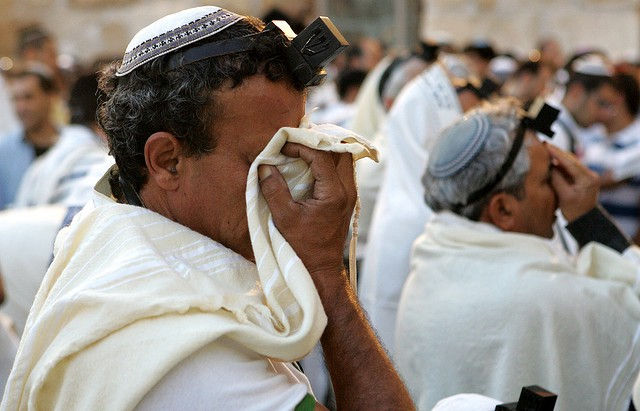Proper Way To Recite Shema
- Halacha Moment
- Jul 7, 2025
- 3 min read
The Daily Halacha Moment - Way To Recite Shema
״כל השונה הלכות בכל יום - מובטח לו שהוא בן העולם הבא״ (נידה עג ע״א, מגילה כח:)
“Anyone who studies Halachot every day is guaranteed that he is destined for the world-to-come” (Megilla 28b, Niddah 73a)
Question:
What's the correct way to recite shema?
Answer:
Shema should preferably be recited aloud, as speaking the words out loud enhances one’s concentration. However, it is permitted to say Shema quietly, as long as it is loud enough that one can hear oneself. [1] If, after the fact, one recited it so softly that even they could not hear their own voice, they have still technically fulfilled their obligation, though it is not the ideal way to perform the mitzvah.
It is customary to recite Kriyat Shema with the ta’amim (cantillation marks), following the traditional trop of Torah reading. This is the widespread minhag among Sephardim and some Ashkenazim. [2] However, other Ashkenazic communities have the custom not to recite it with the Torah trop.
Ideally, one should strive to enunciate each letter of the Shema clearly and distinctly, as proper articulation of the words honors their sanctity and ensures accurate expression of the text. [3] Nevertheless, if one did not enunciate every letter perfectly, they still fulfill their obligation as long as the basic meaning of the words remains clear.
Special attention should be paid when the final letter of one word and the initial letter of the next are the same or can easily blend together. For example, in phrases like "b’chol l’vav’cha" or "va’avadtem m’heirah," one should make sure to pronounce the words distinctly so it is clear that there are two separate words. [4] Additionally, one should be careful when a word ends with a mem and the following word begins with an aleph, such as in "u’z’chartem et," to avoid making it sound like "met" (which would change the meaning entirely). [5]
Sources:
[1]. The Tana Kama in the Mishna Berachot 15a says that after the fact if someone didn't say Shema loud enough to hear himself he fulfilled his obligation. In the Gemara (15b) Rav Chisda rules like the opinion of Rabbi Yehuda that initially one needs to say Shema loud enough to hear himself but after the fact one fulfilled one's obligation even if it was quieter than that. See also Shulchan Aruch 62:3; Halacha Berurah 61:9.
[2]. Talmidei Rabbenu Yonah 8b says that one must say Keriyat Shema with the Torah reading tune. This is also the opinion of the Tur and Shulchan Aruch in 61:24.
[3]. Shulchan Aruch 62:1. The Mishnah Berurah 62:2 writes that the reward for being careful in this is that gehenom will be cooled down for you.
[4]. Shulchan Aruch 61:20 based on Gemara in Berachot 15. The Mishna Berurah 61:33 adds that one shouldn't pause for too long because there is a makaf (hyphen), meaning that it is supposed to be pronounced together.
[5]. Shulchan Aruch 61:21. The Mishna Berurah 61:34 extends this to any situation where the mem and the alef are next to each other even when it will not sound like he is saying met, and also to whenever the aleph will get swallowed if you do not take a short pause.
How You Can Participate
📲 link 😊
Netanel Aminov
Founder Of The Halacha Moment
🌟 Today's Halacha Moment is dedicated:
🕯 Leiluy Nishmat:
Mishael Ben Frecha
Efrat Bat Aushra
🤒 Refuah Shelema:
Chana Bat Sima Feiga
💯 Hatzlacha:
Aminov Family
Sion Ben Elie
DBY
🗣️ Want Your Friends/ Family to Be Part of This Amazing Broadcast?
👇 Click Below 👇

⭐️❤️ Want the _zechut_ of dedicating a Halacha Moment seen by thousands?
Dedicate a day $72
Dedicate A Week $36
Dedicate A Month $1250
Zelle info@halachamoment.com
🤩 Comment on this Halacha Moment and let us know how it impacted you.






Comments